- Biblioteca CEPAL
- Biblioguias
- biblioguias_en
- 75 years of ECLAC and ECLAC thinking
- The 1960s: structural reform for regional development
75 years of ECLAC and ECLAC thinking
The 1960s: structural reform for regional development
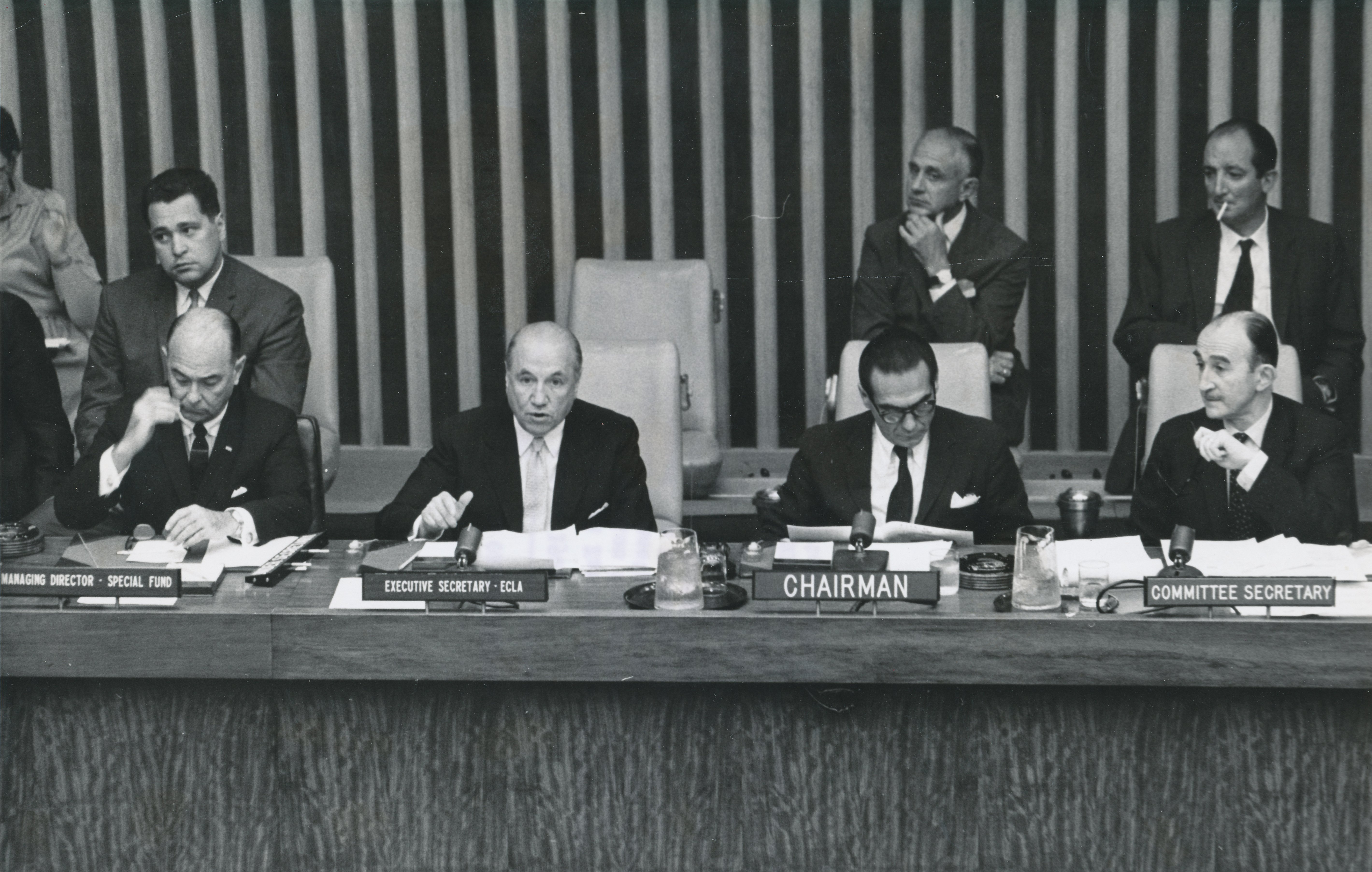
Raúl Prebisch at the ninth session of the ECLAC Committee of the Whole
Ninth session of the ECLAC Committee of the Whole at United Nations Headquarters (New York, June 6-7, 1962).
From left to right, seated on the front panel: Roberto Heurtematte, Associate Managing Director of the UN Special Fund; Raúl Prebisch, Executive Secretary of ECLAC; Luis Escobar Cerda (Chile), President of the Commission and Alfonso Santa Cruz, Secretary of the Commission.
United Nations, New York, June 6-7, 1962
Credit: ECLAC, United Nations
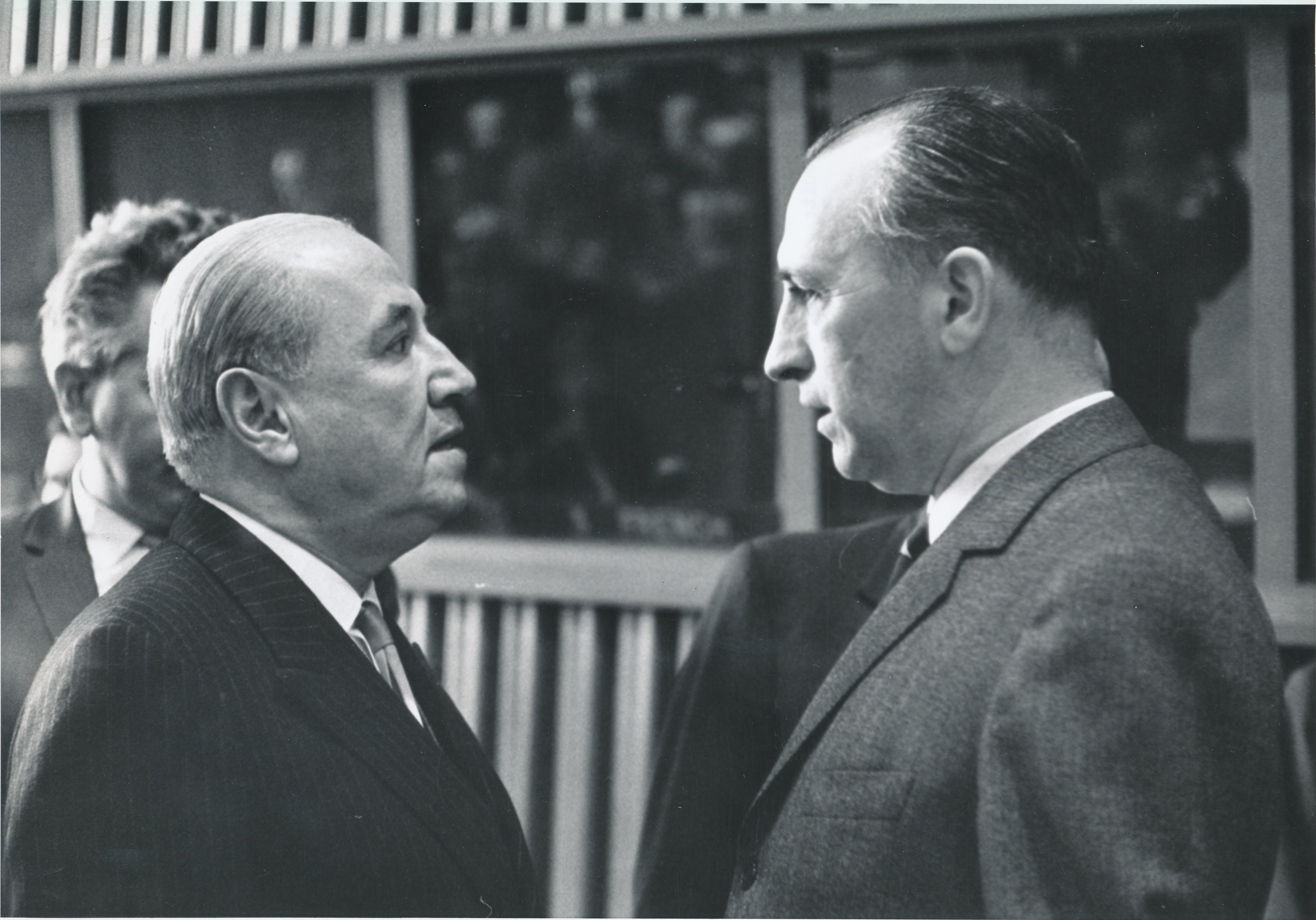
Raúl Prebisch in the preparatory meeting for the United Nations Conference on Trade and Development
Third session of the Preparatory Committee for the United Nations Conference on Trade and Development. Medium shot, from left to right: Raúl Prebisch, UNCTAD Director General standing in conversation with Mr. Maurice Viaud (France).
United Nations, New York, February 3-14, 1964
Credit: ECLAC, United Nations

ECLAC Committee of the Whole meets in Santiago
José Antonio Mayobre (right), ECLAC Executive Secretary, participates in the inaugural session of the ECLAC Committee of the Whole; in the center is Mr. Pedro Daza (Chile), Chairman of the Committee, and on the left is Mr. Alfonso Santa Cruz, Deputy Executive Secretary of ECLAC.
Santiago, February 12, 1964
Credit: ECLAC, United Nations
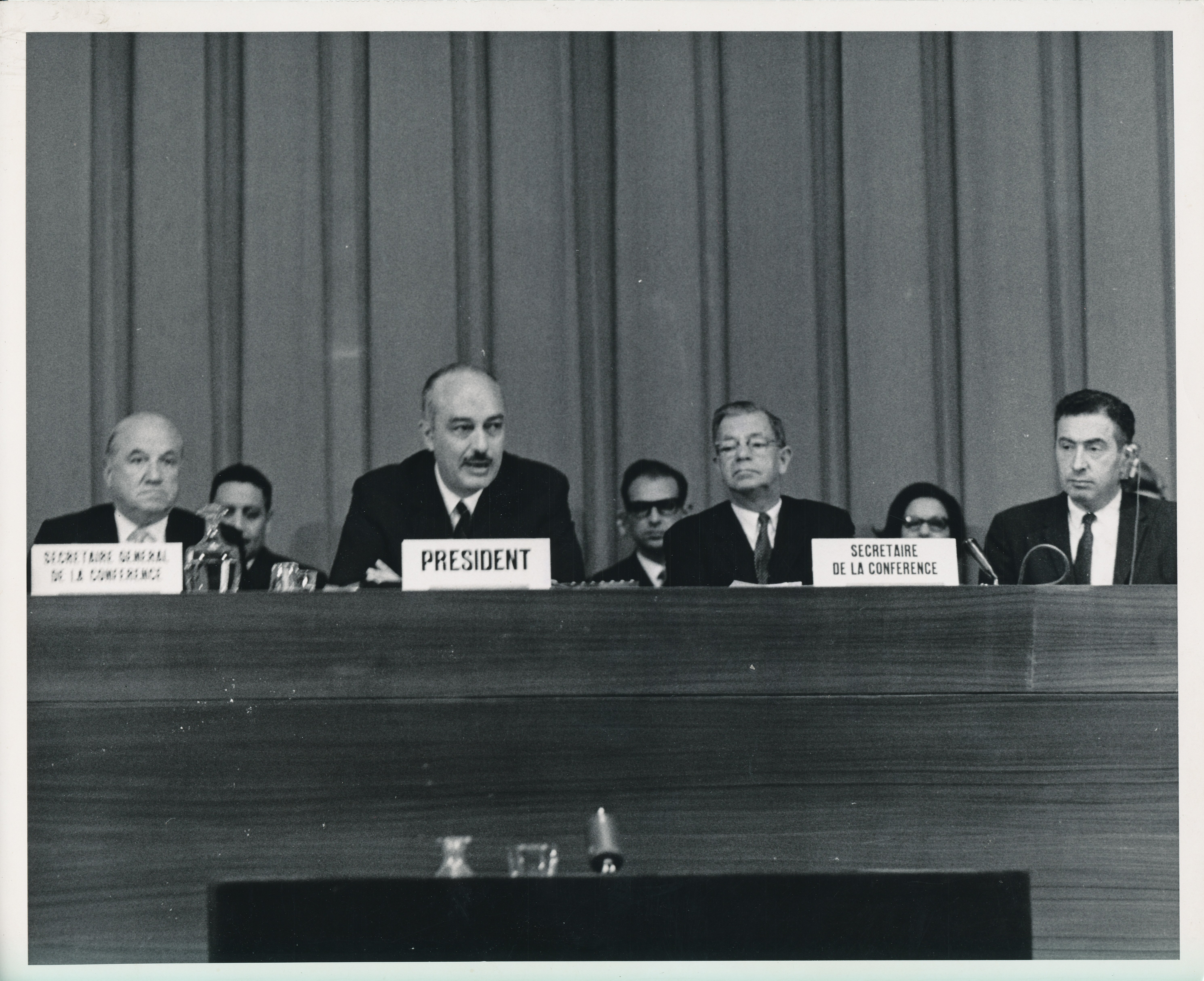
Raúl Prebisch at the first meeting of the United Nations Conference on Trade and Development
First United Nations Conference on Trade and Development (UNCTAD). Palace of Nations, Geneva, March 23 to June 16, 1964. From left to right seated on the front panel: Raúl Prebisch, UNCTAD Secretary General; Abdel Moneim, President of the Conference making a statement.
Geneva, Switzerland, March 1964
Credit: ECLAC, United Nations

Press Briefing by Dr. Raúl Prebisch
Dr. Raúl Prebisch, Secretary-General of the United Nations Conference on Trade and Development, is seen here at a press briefing he held today at United Nations Headquarters.
New York, February 16, 1966
Credit: UN Photo

Inauguration of the Latin American Industrial Symposium in Santiago
Domingo Santa María, Minister of Economy of Chile (right) is seen as he arrived to open the Symposium. With him is Mr. José Antonio Mayobre, Executive Secretary of ECLAC. A regional symposium on industrial development in Latin America opened in Santiago, Chile on March 14. It is scheduled to end on March 25. The Symposium, which is being held under the auspices of ECLAC, in cooperation with the UN Center for Industrial Development, was inaugurated by Domingo Santa María, Minister of Economy of Chile. The participants also heard statements by ECLAC Executive Secretary, José Antonio Mayobre (left), and Walter Chudson, on behalf of the Commissioner for Industrial Development.
Santiago, March 14, 1966
Credit: ECLAC, United Nations
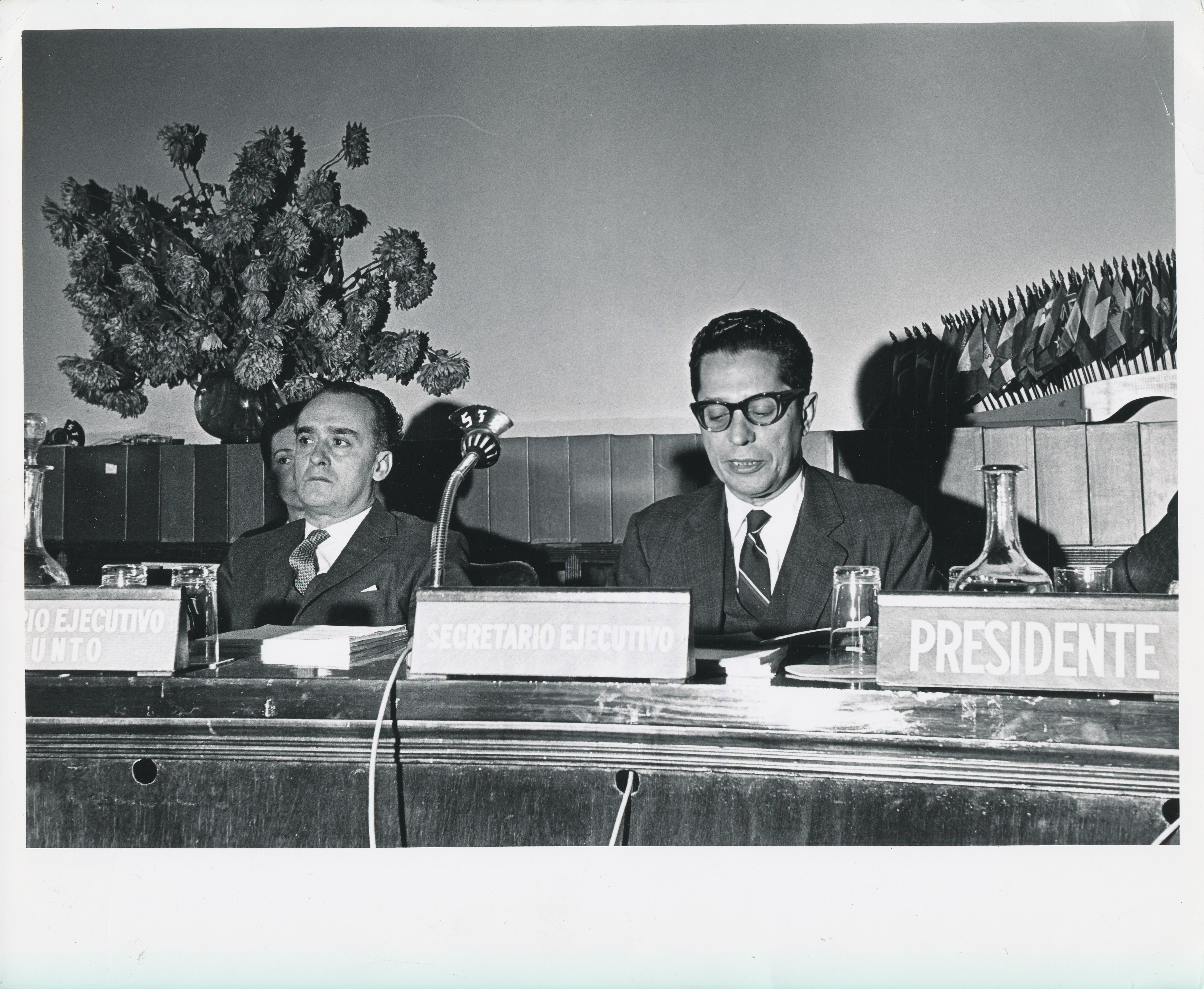
Eleventh Period of Sessions of the Committee of the Whole of ECLAC in Santiago
Antonio Mayobre, ECLAC Executive Secretary, addressing the Committee. On the left, Mr. Manuel Balboa, ECLAC Deputy Executive Secretary.
ECLAC, Santiago, May 11, 1966.
Credit: ECLAC, United Nations
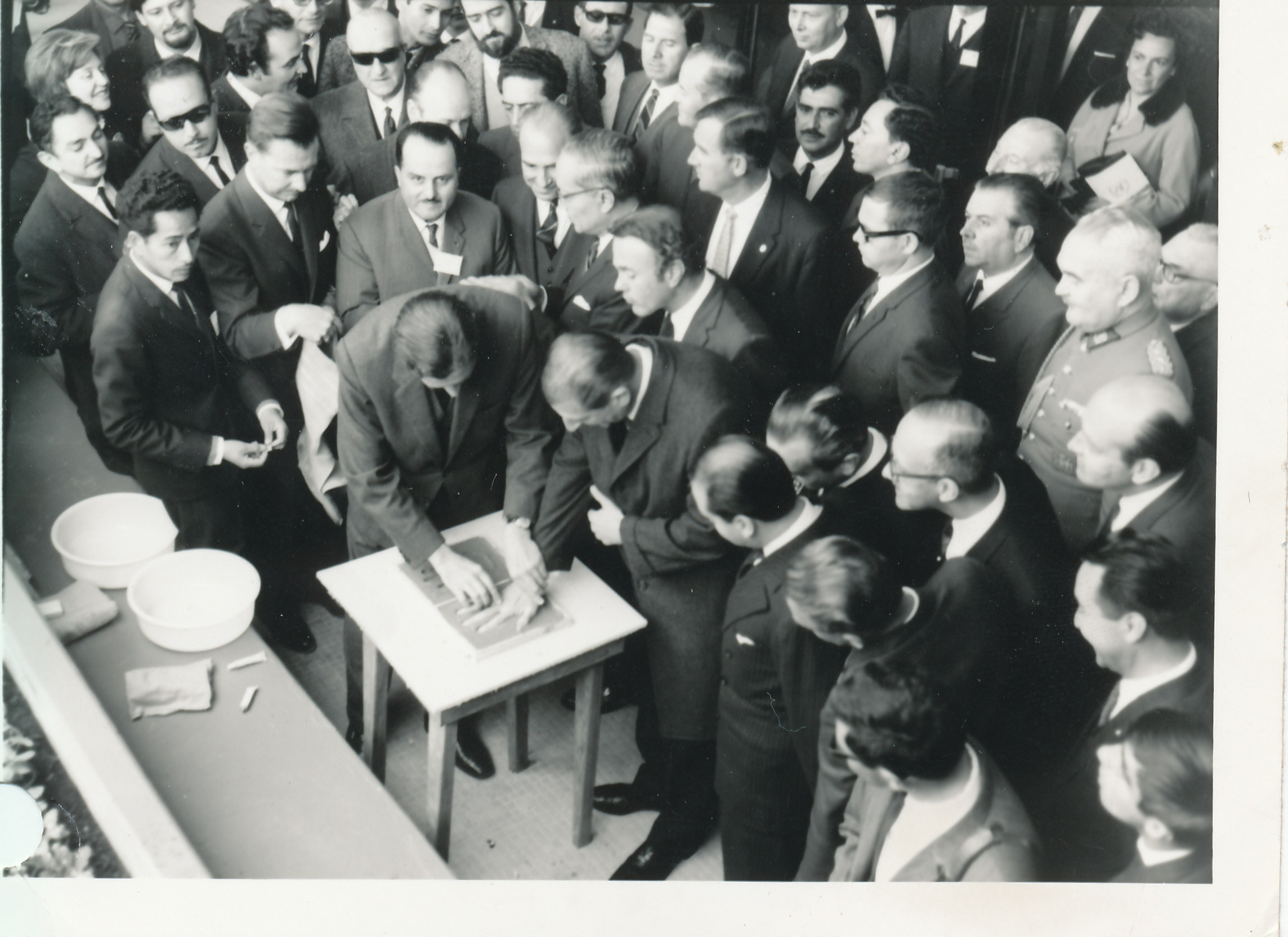
Eduardo Frei Montalva printing his hand on the cement plate.
Eduardo Frei Montalva, President of the Republic of Chile at the time of printing his hand on the cement plate. With the presence of U Thant, Secretary-General of the United Nations and surrounded by authorities and officials at the inauguration ceremony of the ECLAC Building.
Santiago, August 29, 1966
Credit: ECLAC, United Nations
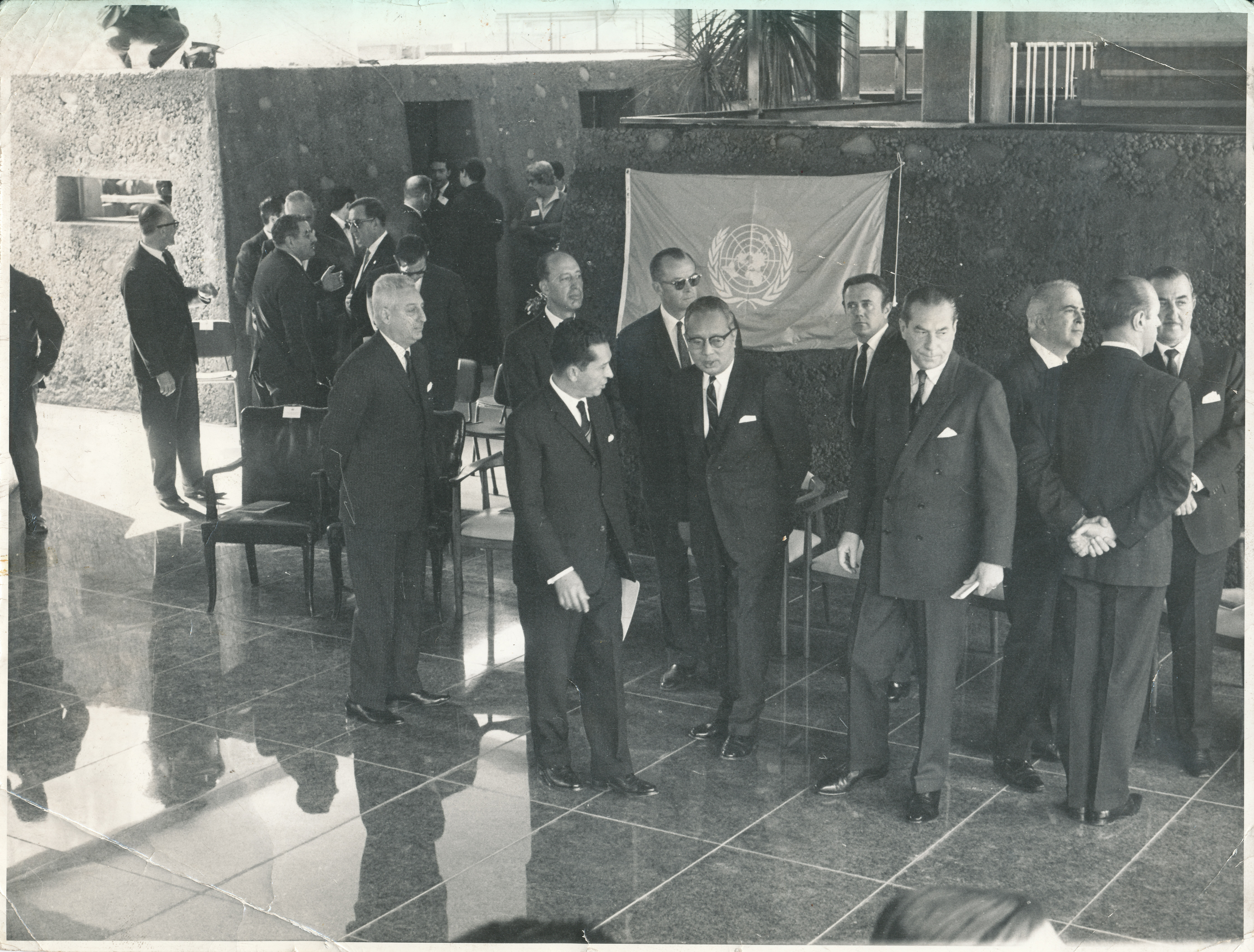
Inauguration ceremony of the ECLAC building
General shot of an informal conversation, prior to the inauguration ceremony of the ECLAC Building in Santiago de Chile, August 29, 1966. Center left José Antonio Mayobre, Executive Secretary of ECLAC talking with U Thant Secretary-General of the United Nations.
Santiago, August 29, 1966
Credit: ECLAC, United Nations
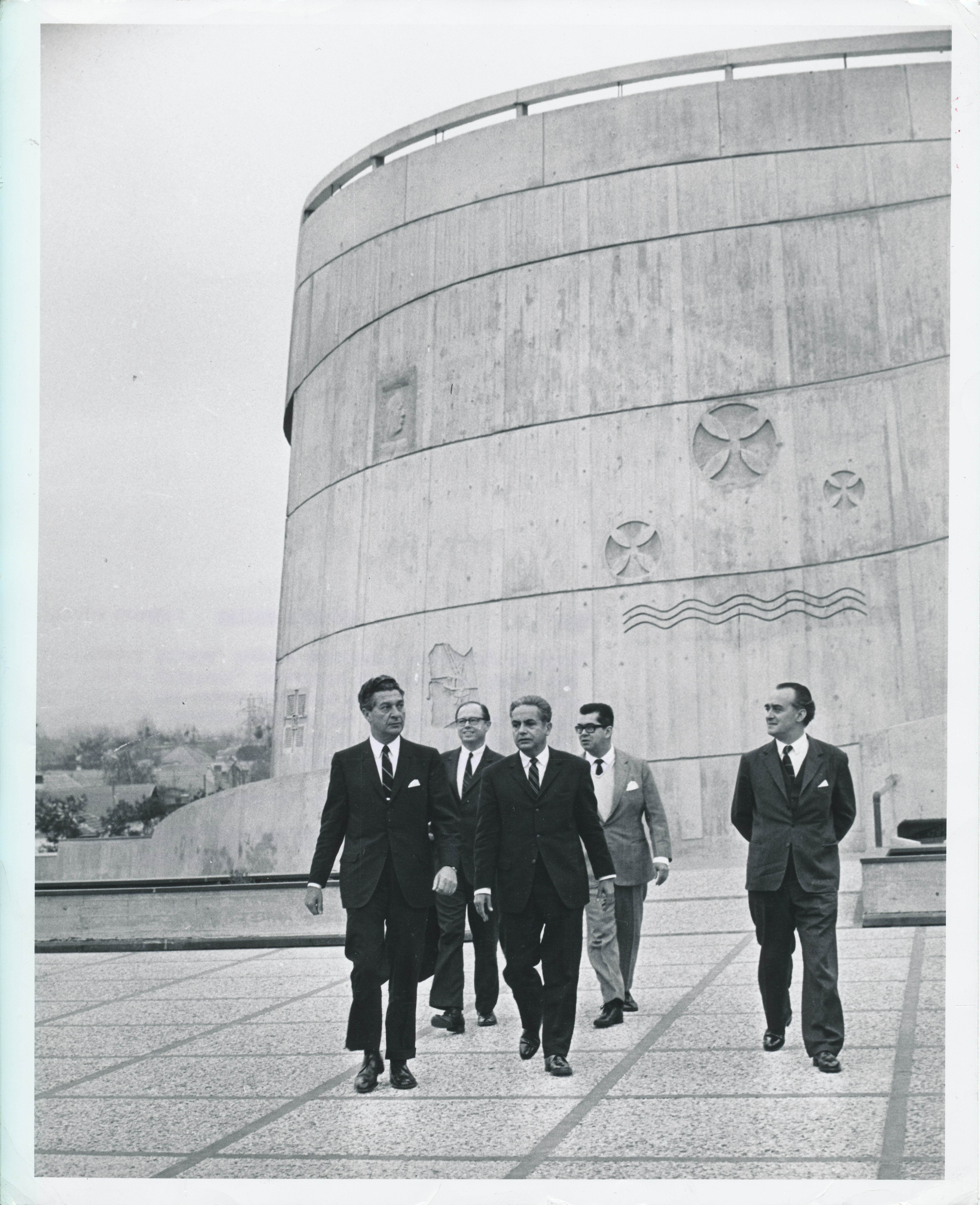
OAS Ambassador visits ECLAC
In front, from left to right: Sol Linowitz (Ambassador of the United States to the Organization of American States (OAS), Carlos Quintana, Executive Secretary of ECLAC and Manuel Balboa, Deputy Executive Secretary, walking in the side corridor of the Snail of the ECLAC building.
ECLAC, Santiago, September 4, 1968.
Credit: ECLAC, United Nations

Early in this decade, the Commission undertook a critical evaluation of its initial programme of work in the light of the results observed in the region, especially in those economies that had undergone a process of industrialization. Although the region had registered higher growth rates since the end of the Second World War, industrialization was found to have reproduced other peripheral conditions.
To revitalize the industrialization process, structural reforms had to be carried out to reduce the agricultural lag, to contain the marginalization and poverty resulting from the dynamics of rural-urban migration, and to promote investments that would enable the accumulation of technical progress and greater labour absorption in the new industrial activities. ECLAC therefore proposed structural changes based on agrarian reform and the application of income redistribution policies to reduce structural heterogeneity and dependence with a view to fostering development. (Prebisch, Raúl. 1963,Towards a dynamic development policy for Latin America)
With the realization that the social structure of the countries of the region was a serious obstacle to technical progress, ECLAC therefore incorporated into its work an approach aimed at a better understanding of economic and social development. The necessary structural reforms would not have been possible without the support of technically designed instruments and programmes. The Latin American and Caribbean Institute for Economic and Social Planning (ILPES) was established to train and advise governments on reforms and conduct research on planning techniques.
Selected text 1960-1969
“In the 1960s an additional component was added to the pro-industrialization message: the proposal to implement institutional reforms —in the agrarian, fiscal and financial domains, among others— that were considered crucial for the continuity and deepening of industrial development.” (Sixty years of ECLAC: structuralism and neo-structuralism. CEPAL Review, No. 97, 2009, p. 174)
-
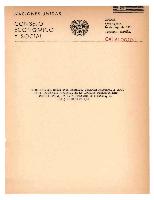 Exposición del Sr. Raúl Prebisch, Director Principal a cargo de la Secretaría Ejecutiva de la Comisión Económica para América Latina, en la primera sesión plenaria, el día 5 de mayo de 1961
Call Number: E/CN.12/616Publication Date: 5 de mayo de 1961
Exposición del Sr. Raúl Prebisch, Director Principal a cargo de la Secretaría Ejecutiva de la Comisión Económica para América Latina, en la primera sesión plenaria, el día 5 de mayo de 1961
Call Number: E/CN.12/616Publication Date: 5 de mayo de 1961 -
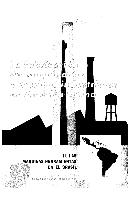 The machine-tools industry in Brazil: background material for the programming of its development
Call Number: E/CN.12/633Publication Date: November 1962
The machine-tools industry in Brazil: background material for the programming of its development
Call Number: E/CN.12/633Publication Date: November 1962 -
Hacia una dinámica del desarrollo latinoamericano: con un apéndice sobre El falso dilema entre desarrollo económico y estabilidad monetaria by
Publication Date: 1963México, D.F.: Fondo de Cultura Económica/CEPAL -
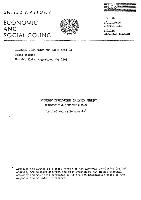 Economic development in Latin America sociological considerations
by
Call Number: E/CN.12/646Publication Date: 10 February 1963
Economic development in Latin America sociological considerations
by
Call Number: E/CN.12/646Publication Date: 10 February 1963 -
The social development of Latin America in the post-war period
Call Number: E/CN.12/660Publication Date: 11 May 1963CEPAL. Período de Sesiones 10 Mar del Plata 6-18 mayo 1963 -
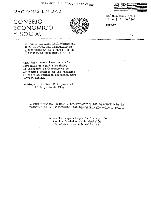 La participación popular y los principios del desarrollo de la comunidad en la aceleración del desarrollo económico y social
Call Number: ST/ECLA/CONF.18/L.1Publication Date: junio 1964
La participación popular y los principios del desarrollo de la comunidad en la aceleración del desarrollo económico y social
Call Number: ST/ECLA/CONF.18/L.1Publication Date: junio 1964 -
 Statistical bulletin for Latin America, August 1964
Publication Date: August 1964
Statistical bulletin for Latin America, August 1964
Publication Date: August 1964
Cielo Morales, Director of the Latin American and Caribbean Institute for Economic and Social Planning (ILPES), reviews the history, present and future of this think tank and the strategic components of its work; and she examines the main challenges of planning for the implementation and fulfilment of the 2030 Agenda for Sustainable Development in the region. (Only available in Spanish)
-
-
 Discusiones sobre planificación: informe de un Seminario
Publication Date: 1966Serie: Textos del ILPES
Discusiones sobre planificación: informe de un Seminario
Publication Date: 1966Serie: Textos del ILPES
México, D.F.: Siglo Veintiuno -
 El uso de fertilizantes en América Latina
Call Number: E/CN.12/760Publication Date: octubre de 1966
El uso de fertilizantes en América Latina
Call Number: E/CN.12/760Publication Date: octubre de 1966 -
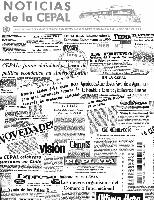 Noticias de la CEPAL, 1968 N° 1
Publication Date: 1968El pensamiento de la CEPAL.-- En la época de postguerra.-- Razón de los postulados iniciales.-- En el campo industrial.-- Hacia la integración.-- Comercio y financiamiento externos.-- Las reformas sociales.-- Como nació la CEPAL.-- Qué es la CEPAL.-- Que ha hecho la CEPAL.
Noticias de la CEPAL, 1968 N° 1
Publication Date: 1968El pensamiento de la CEPAL.-- En la época de postguerra.-- Razón de los postulados iniciales.-- En el campo industrial.-- Hacia la integración.-- Comercio y financiamiento externos.-- Las reformas sociales.-- Como nació la CEPAL.-- Qué es la CEPAL.-- Que ha hecho la CEPAL. -
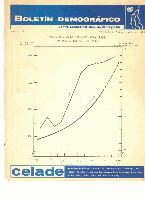 Crecimiento de la población de la región de América Latina, 1920-1980
by
Publication Date: enero de 1968Boletín Demográfico Año I, No.1 [Bilingual Publication]
Crecimiento de la población de la región de América Latina, 1920-1980
by
Publication Date: enero de 1968Boletín Demográfico Año I, No.1 [Bilingual Publication] -
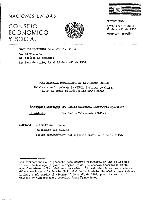 Summary record of the first meeting: held at ECLA headquarters, Santiago, Chile, on Tuesday, 23 April 1968
Call Number: E/CN.12/AC.61/SR.1Publication Date: 23 April 1968
Summary record of the first meeting: held at ECLA headquarters, Santiago, Chile, on Tuesday, 23 April 1968
Call Number: E/CN.12/AC.61/SR.1Publication Date: 23 April 1968 -
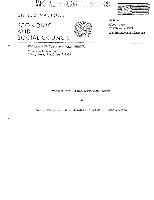 Social change and social development policy in Latin America
Call Number: E/CN.12/826/REV.1Publication Date: November 1969
Social change and social development policy in Latin America
Call Number: E/CN.12/826/REV.1Publication Date: November 1969
-
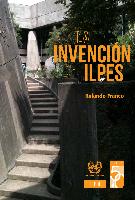 La invención del ILPES
by
Publication Date: 2013
La invención del ILPES
by
Publication Date: 2013

